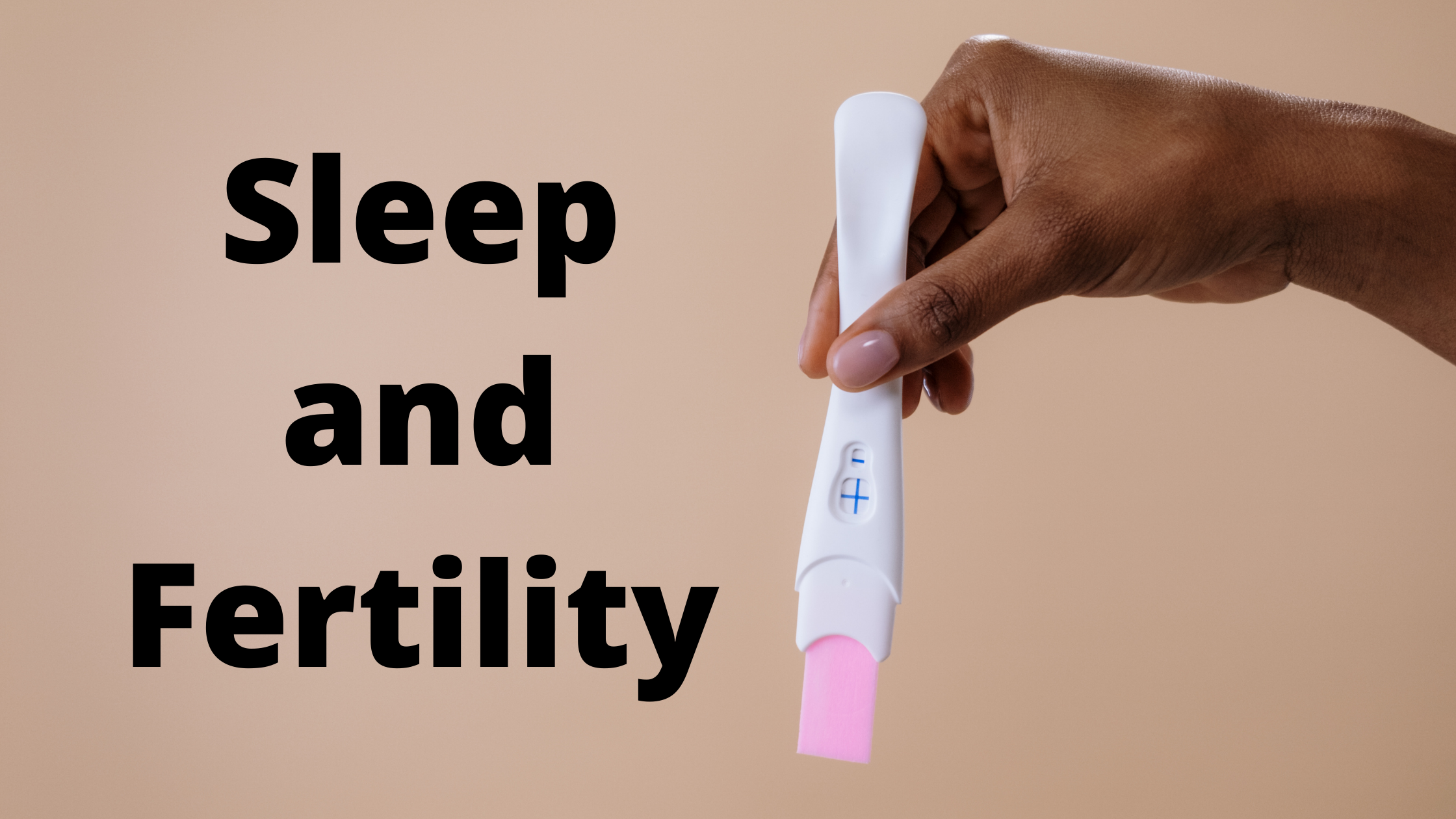
Sleep is important for a variety of reasons, but one important reason to get good sleep is to improve your fertility. If you and your partner are trying to conceive, getting good sleep will absolutely help your chances of successfully getting pregnant. Continue reading to find out how sleep can impact your fertility and ways to improve your rest.
Why Sleep is Important
It is a common misconception that during sleep, your body shuts down. However, that is far from the truth. Your body is actually undergoing many important physiological processes. Repair, restoration, and the balancing of the day's fluctuations happen all while you're asleep. In your brain, there are many neurological functions taking place - memories are being created and learning is being consolidated.
Without sleep, you may experience many deficits in your daily functioning. Your mood, memory, focus, and anything more than general functioning may be impaired. Your overall energy levels may be extremely decreased as well. Therefore, the only thing you're able to do is just keep your eyes open (barely) and try to avoid danger. Anything extra may be beyond the scope of your body's ability.
Sleep and Hormones
So how does sleep specifically affect fertility? One, sleep balances hormones, and when you are not getting enough, then your hormones may not be at optimal levels for fertility. Melatonin is the chief sleep hormone. At night, there are higher levels produced, which help prepare your body for sleep. When your sleep schedule is off, your production of melatonin may also be off. Sleep also controls your cortisol levels. Cortisol is the chief stress hormone. It peaks at the beginning of the day - very early in the morning - and kickstarts other necessary biological processes. When you are overly stressed, it is produced in very large amounts, which can cause other hormonal imbalances.
Sleep disruptions are associated with increased stress levels. Sleep deprivation will signal to the body to create higher levels of cortisol. However, higher levels of cortisol can decrease levels of estrogen, testosterone, and other hormones that play important roles in fertility.
Circadian Rhythm
The circadian rhythm is the sleep-wake cycle. It controls the release of hormones like melatonin and cortisol, and is controlled by the suprachiasmatic nucleus (SCN). You can better regulate it with a better sleep schedule. However, if your sleep schedule is irregular and/or you are not getting enough sleep, then it can throw off your sleep-wake cycle.
It is also linked to reproductive hormones that trigger ovulation in women. It can interfere with sperm maturation in males. This can make it difficult to predict ovulation and prolong the process of trying to get pregnant. In men, sperm that are not as healthy are not as likely to fertilize eggs, and if they can, then they lead to nonviable embryos or complications like congenital defects. Essentially, without adequate sleep, women may have trouble predicting their ovulation cycle, and men may have trouble creating sperm that can create eggs that are capable of becoming living fetuses.
Appropriate Amount of Sleep
So what is the right amount of sleep? Seven to eight hours is a standard recommendation. Studies have shown that those who get less than seven hours of sleep have more trouble getting pregnant than those who get at least seven hours.
On the flip side of that, however, those who get more than nine hours of sleep are also at risk for infertility compared to those who get less sleep. Your exact needs are dependent upon genetics, your work schedule, and your activity level throughout the day. If you have any sleep disorders, then your sleep needs may also be different. Be sure to speak with your doctor or a sleep health expert to find out what your needs are, and then try to adhere to that.
How to Get Better Sleep
Getting better sleep is not an immediate fix, especially if you haven't been practicing good sleep habits. It takes time, just like any other habit. However, once you're able to create the change that you need, you will be very thankful and be able to see the changes in many different parts of your life.
One way you can get good sleep is to practice good sleep hygiene. Sleep hygiene consists of the behaviors you do prior to bed that can influence your ability to go to sleep. You should be going to sleep and waking up at about the same time every day (including the weekends). This will help you regulate your sleep schedule. In order to do this, create a schedule of things you do each night that help you relax enough to get a good night's sleep. This can include taking a warm bath or shower, reading, drinking a cup of sleepy-time tea, and spending time with family. Try to reduce your screen time and don't do anything that can increase your heart rate or blood pressure.
If you are really struggling to get a good night's sleep, then you may have an underlying sleep disorder that requires a medical diagnosis and treatment plan. Please click the orange button below to take a free online sleep test and talk with a sleep health expert today.
https://carolinasfertilityinstitute.com/can-lack-sleep-affect-fertility/#:~:text=Research%20has%20found%20that%20women,who%20got%20nine%20or%20more.

